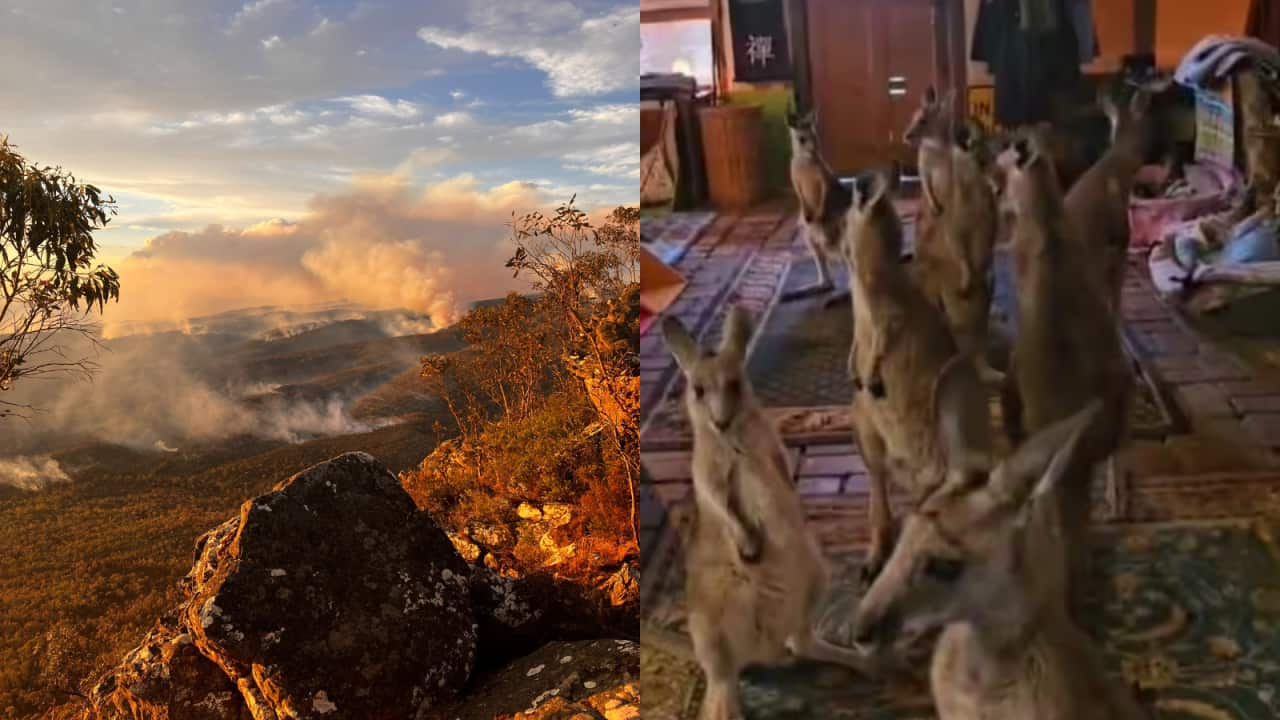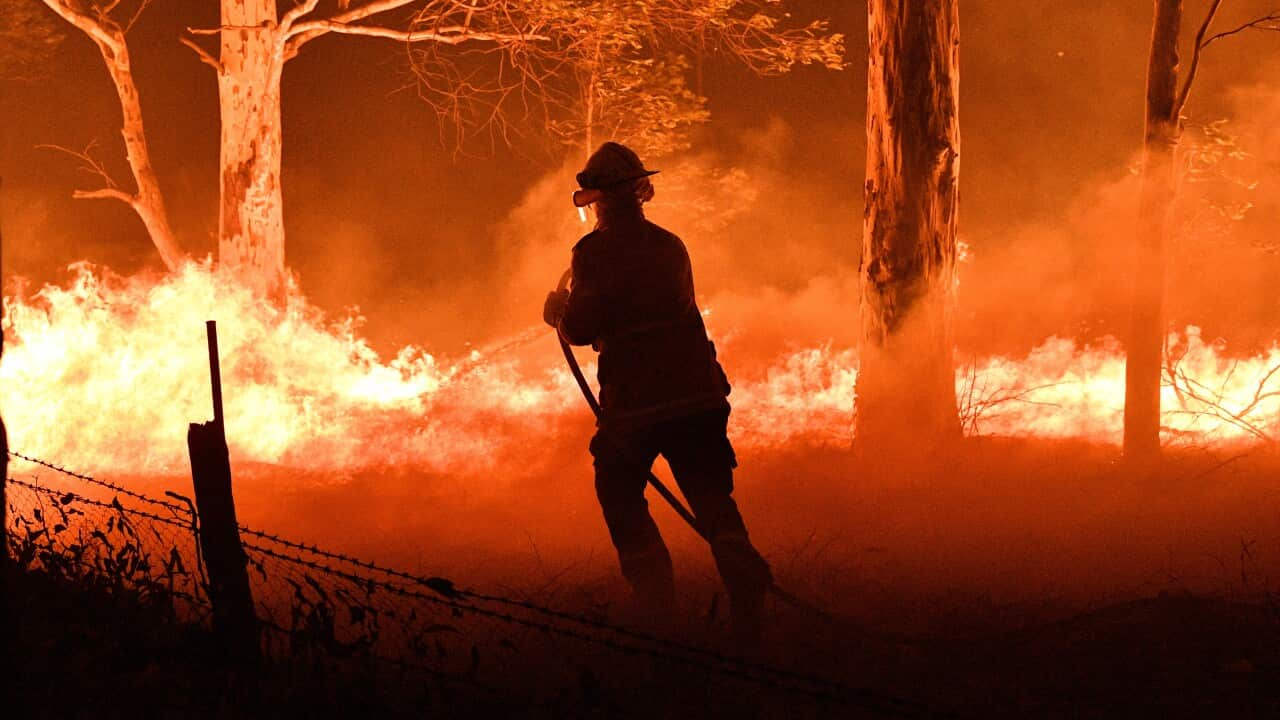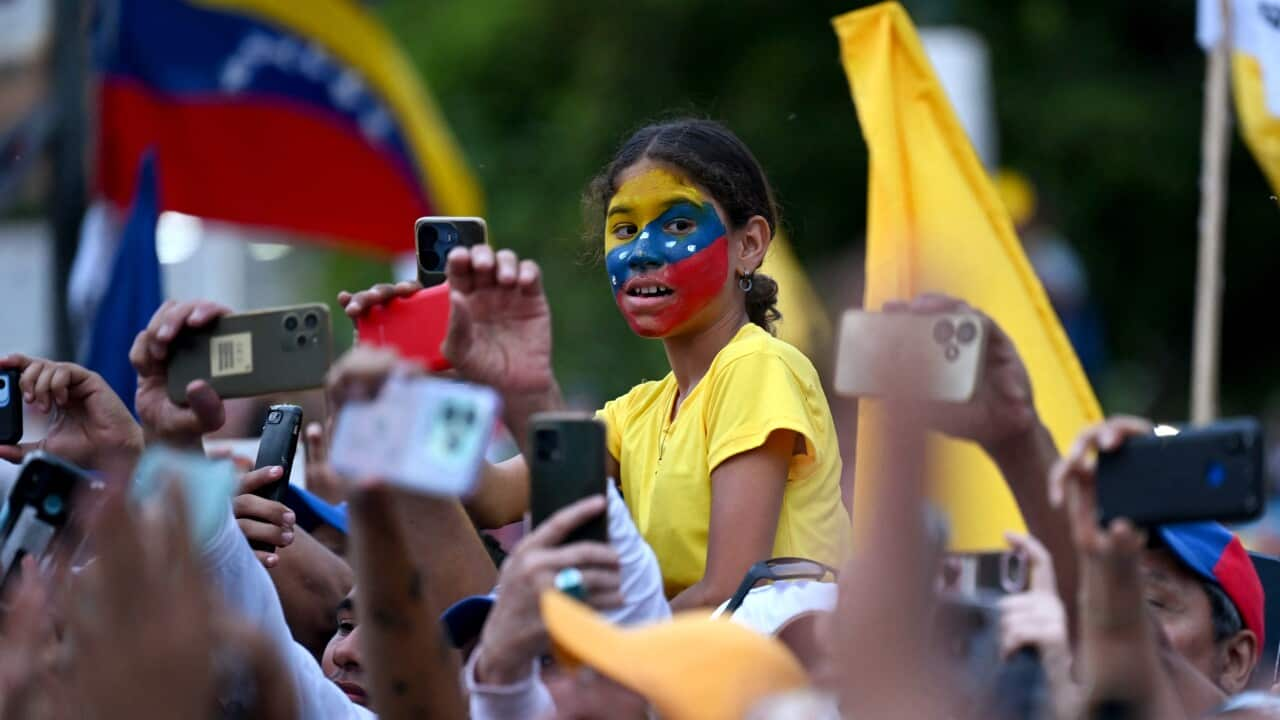Key Points
- The 2019-2020 bushfire season was one of the worst in Australia's history.
- Mogo, almost 300km from Sydney, was one of many coastal towns in the southeast of Australia severely affected.
- The Román-Granados family, who lost their home and leather business, fear tragedy could strike again.
The devastating bushfires of late 2019 and early 2020 burned through more than 24 million hectares and destroyed more than 3,000 homes on Australia's east coast.
Lorena Granados' family lost their home and leather shop on New Year's Eve 2019 when fires raged through Mogo, a small heritage town located around 300km south of Sydney with a population of about 300.
Granados, from El Salvador, and her husband Gaspar Román, from Chile, still live with their three children in Mogo.

The container where the family's leather crafts shop operated after the 2019 bushfires, in Mogo, NSW. Credit: Lorena Granados
“We would not be where we are today without them,” Granados told SBS Spanish.
On top of the fires, Granados and her family were also impacted by the devastating floods of February 2020 that affected the south-east coast of Australia and the COVID-19 pandemic declared in March 2020.
Granados said the family were unable to rebuild their house as they did not qualify for financial aid from the government.
“The funds they gave to rebuild a house were means tested. We submitted several applications, but we were unable to obtain funds because our business had recorded too much income to qualify for aid,” she said.

Lorena Granados, Gaspar Román, their three children and family pet. Credit: Lorena Granados
Granados said that for several years they had to run the business from a shipping container, from which they sold leather crafts made with tools the community had donated to them.
Nowadays, the family lives in an apartment that they bought with a loan from the bank, and they sell their leather goods from a new shop located in the heart of Mogo, established with the relief they received from the government.
It has been almost five years since the family “lost all their material possessions” and Granados said sometimes it "feels like a dream" looking back at their old lives.

The family's new leather crafts business in Mogo. Credit: Lorena Granados
“For example, the other day my husband was looking for a jar of metal buttons and I had to remind him that those buttons don't exist anymore and that they belonged to our lives before the fire burned everything down.”
'A different resilience'
Granados said many of her townspeople still live with trauma of the fires and summer brings an increase in anxiety.
“In our area, when there is smoke, many people panic. My neighbours panic when they smell smoke,” she said.

Lorena Granados rebuilt her business after the bushfires in Mogo, NSW, in 2019. Credit: Lorena Granado
“I think it's because we come from other countries, we have a different resilience. We have already suffered several traumas,” she said.
“Obviously we lived in a state of shock for a long time, and we were on adrenaline because there was a lot of activity around us, but when COVID came, for us it was a moment of contemplation to be able calmly to look at what had happened.”
Granados came to Australia after escaping the civil war in El Salvador, while Gaspar fled from the dictatorship in Chile under Augusto Pinochet.
“Coming to this country was traumatic for us, and I think that has given us a different strength, a different resistance to a person who has never suffered, or who has never seen a dead body, for example, or a burnt body," she said.
“That smell of the fire and burnt bodies was exactly the same smell that I felt in the middle of the war in El Salvador when I was a child, exactly the same, so the trauma is a little bit easier for us compared to another person who has never experienced anything like that before.”
Fears for the future
Although they have managed to get a roof over their heads and rebuild a profitable business in Mogo, Granados is worried about the conditions predicted for the summer of 2024-2025 and fears that what happened in 2019 will happen again.
Mogo is a very beautiful rural area, but until now, after almost five years, there has been no intervention to prevent another fire like the one we suffered five years ago.Lorena Granados
“(There has been no) burning the forest like the Aboriginals did, controlled burning, to prepare the soil for the hot weather,” she claimed.
“The other problem is the lack of access if we need to escape. We only have one road to get out and one to get in.”
“When the 2019 fires happened, I came across a gate that was locked that day, so I was trapped. Thank God we were in a 4x4 and with that we broke the gate to get through. Without that, we don't know how we would have gotten out of that situation.”









